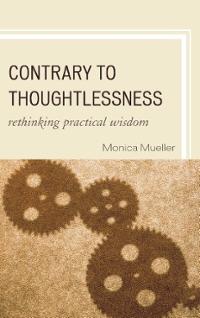by Aaron Butts
Late Monday afternoon, students, faculty, and friends crowded into the chapel of Kerns Religious Life Center to hear Dr. Monica Mueller’s lecture on her recent publication, “Contrary to Thoughtlessness: Rethinking Practical Wisdom.”
Mueller, a professor of philosophy at Capital since 2009, was the latest in a “Celebration of Excellence” as described by Provost Dr. Richard Ashbrook in a recent email to students.
Mueller nervously opened the lecture with a joke about philosophers, “How many philosophers does it take to change a light bulb?” Mueller asked. The punch line to the joke is not a simple number as she explained, “There’s so many questions to ask before we can know.”
Mueller went on to analyze the concept of “change” through the eyes of her different philosophy classes such as ethics, existentialism, and environmentalism. She remedied her original question to be, “How many philosophers does it take to change the world?”
Really, the concepts that Mueller demonstrated were not specific to students of philosophy. She discussed at length the idea of “thoughtlessness” as expressed by Hannah Arendt in her book “Eichmann in Jerusalem.”
Arendt brings up this concept of the “banality of evil” in relation to the Nazi Adolf Eichmann who perpetrated atrocities during the Holocaust and claimed the cliché defense that he was only doing his job. What Mueller argues is that this is dangerous.
“Thoughtlessness is not stupidity,” Mueller said, and then went on to say that it’s failing to think critically that leads to a failure to act ethically.
Mueller points out Arendt’s perspective on Eichmann, not because he was a genocidal monster, but rather because he was a typically normal person, demonstrating Mueller’s point that thoughtlessness can lead anyone to perpetrating horrible and unethical acts.
She also demonstrated in her lecture that this thoughtlessness is present here at home within American politics and how we treat our environment.
During the lecture Mueller also lent a definition of friendship which is found in the final chapter of her book, explaining that true friends are not the ones that are constantly reaffirming decisions, but rather providing criticism.
It is that provocation to think critically that is essential to counteracting thoughtlessness, according to Mueller. In her lecture she pointed out the problem that our world faces as she predicted increased homelessness and advocated a proactive attitude.
“I don’t mean to depress you,” Mueller said. “We live in a world that has many problems […] We need to learn to act in the face of these problems.”
Mueller concluded her lecture by answering her revised question of how many philosophers it takes to change a light bulb by answering, “All of us.”
Mueller’s book is available at Blackmoore Library as well as for purchase in both Kindle version and hardcover book on Amazon.
abutts@capital.edu

